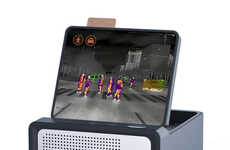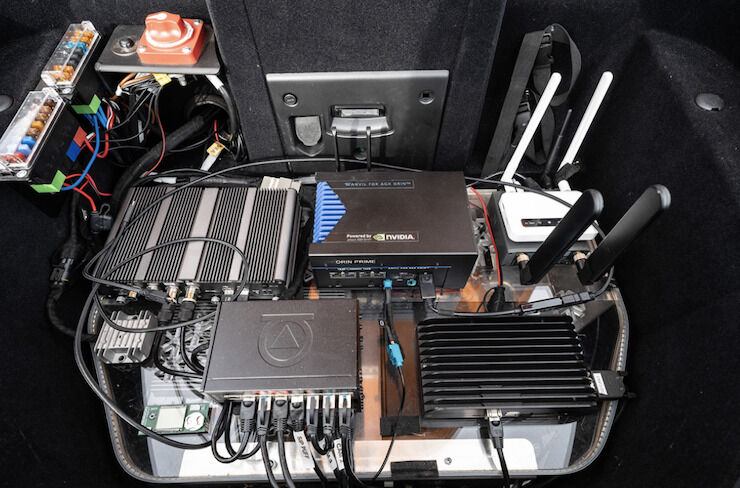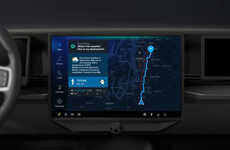
Arrow Electronics & NVIDIA Have Produced a Groundbreaking Design
References: accesswire
Arrow Electronics and NVIDIA have collaborated on a groundbreaking AI-powered steering system designed for the Semi-Autonomous Mobility Car. Utilizing NVIDIA's Jetson AGX Orin module — which is known for its high accuracy and minimal latency — the system employs facial recognition technology to interpret head movements for steering control. This innovation allows quadriplegic racecar driver Sam Schmidt to operate the vehicle at competitive speeds with greater control and responsiveness compared to previous technologies.
The AI-powered steering system captures Schmidt's head movements through a stereo camera pair on the car's dashboard in real-time. Through machine learning algorithms, the system swiftly adjusts the car's steering angle with extraordinary precision, enabling instantaneous response times crucial for speeds up to 213 mph.
Beyond its application in racing, the AI steering system holds potential for diverse everyday uses across sectors such as agriculture, warehousing, public transit, and construction.
Image Credit: Arrow Electronics x NVIDIA
The AI-powered steering system captures Schmidt's head movements through a stereo camera pair on the car's dashboard in real-time. Through machine learning algorithms, the system swiftly adjusts the car's steering angle with extraordinary precision, enabling instantaneous response times crucial for speeds up to 213 mph.
Beyond its application in racing, the AI steering system holds potential for diverse everyday uses across sectors such as agriculture, warehousing, public transit, and construction.
Image Credit: Arrow Electronics x NVIDIA
Trend Themes
1. AI-powered Mobility - AI-powered steering systems interpret subtle human movements for precise vehicle control, opening new possibilities for enhanced accessibility.
2. Facial Recognition Control - Facial recognition technology used in steering systems provides an innovative interface that could transform vehicle operation for those with physical disabilities.
3. Real-time Machine Learning - Real-time machine learning algorithms in automotive systems deliver rapid, accurate adjustments, greatly improving safety and performance in various settings.
Industry Implications
1. Assistive Technology - AI-powered steering technologies significantly elevate the capabilities of assistive devices, making them more responsive and user-friendly for individuals with limited mobility.
2. Automotive - Incorporating AI and facial recognition into vehicle control systems pioneers new advancements in semi-autonomous and fully-autonomous vehicle functionalities.
3. Agriculture - Adopting AI steering systems in agricultural machinery can enhance operational precision and efficiency, particularly in environments that require meticulous maneuvering.
7.2
Score
Popularity
Activity
Freshness
























